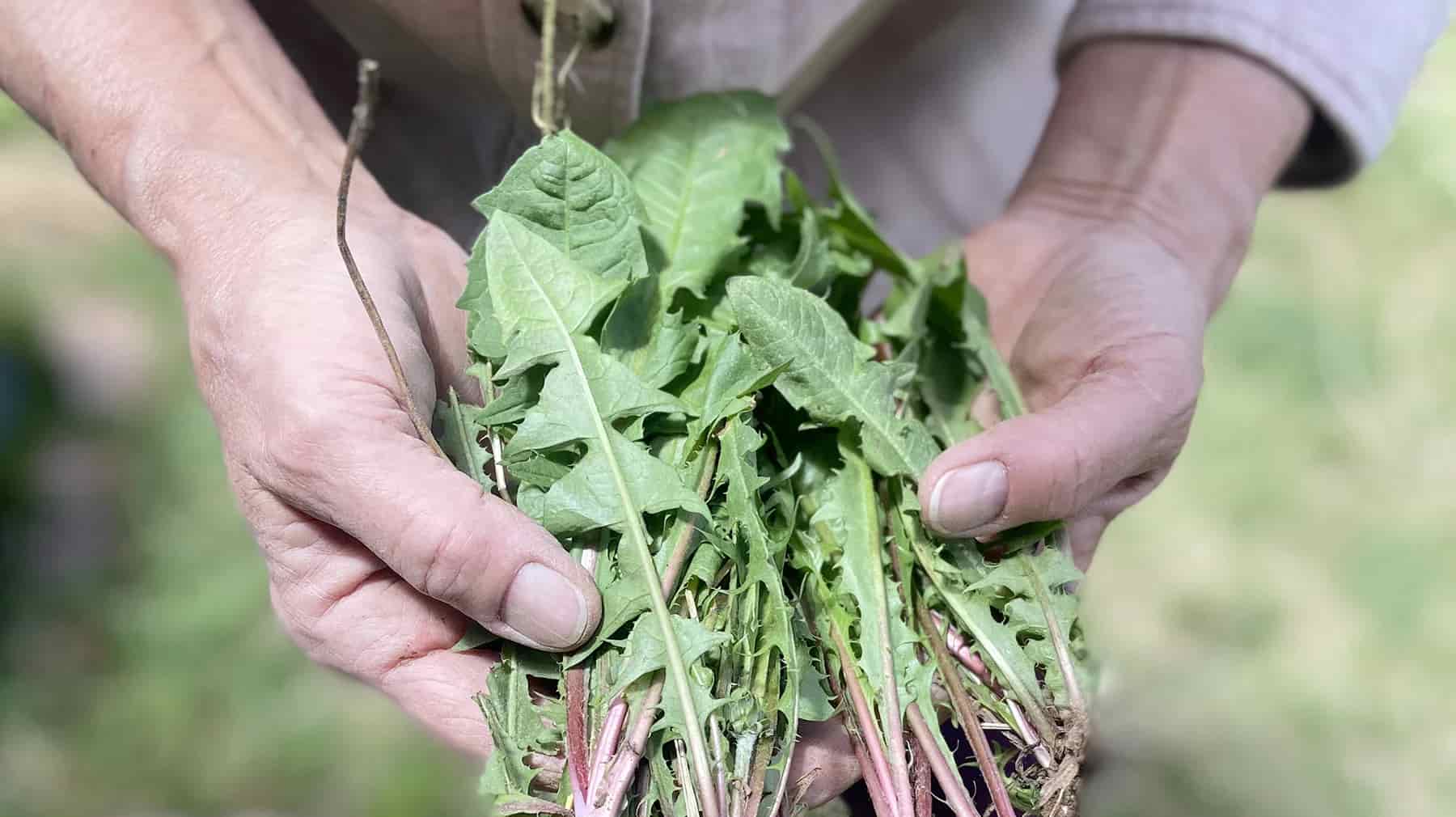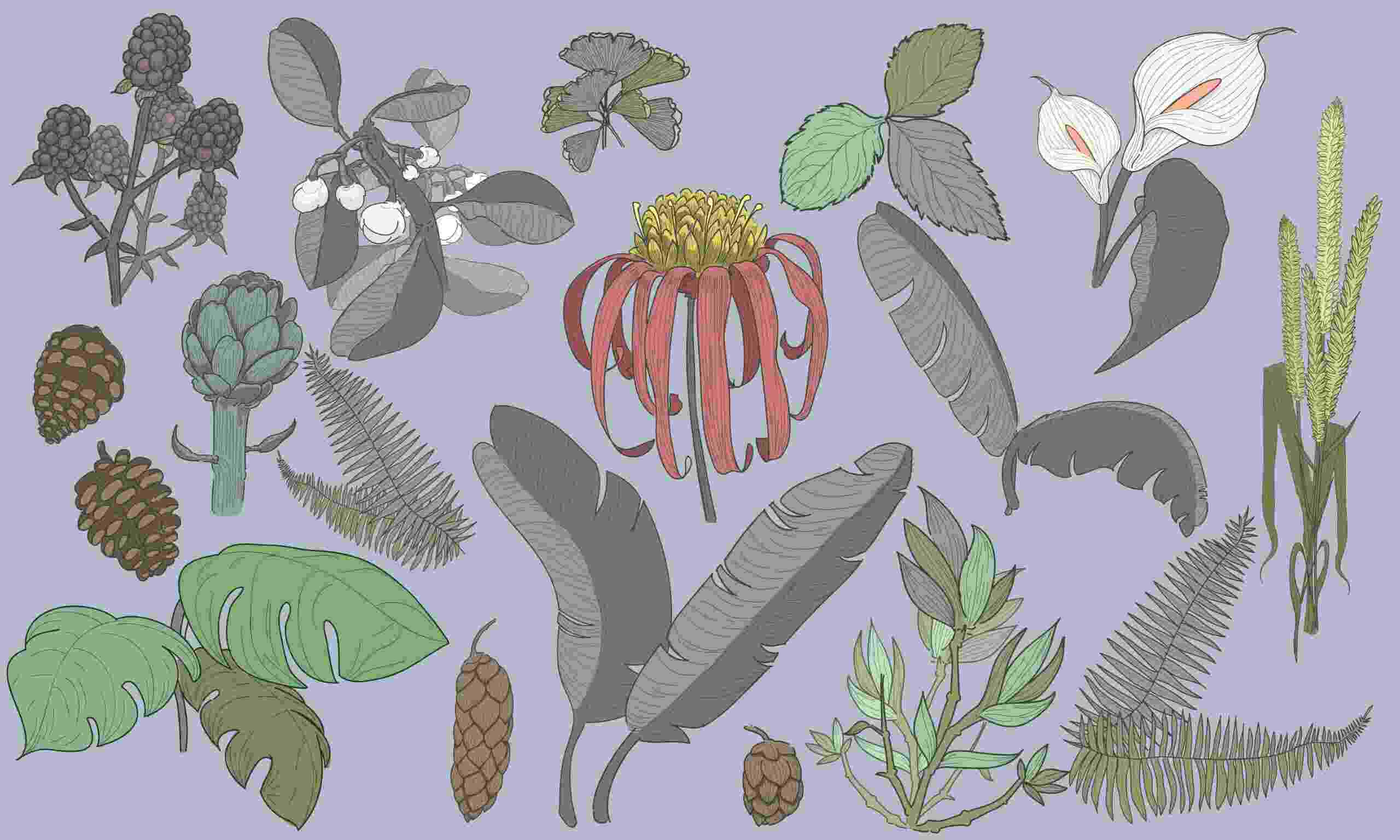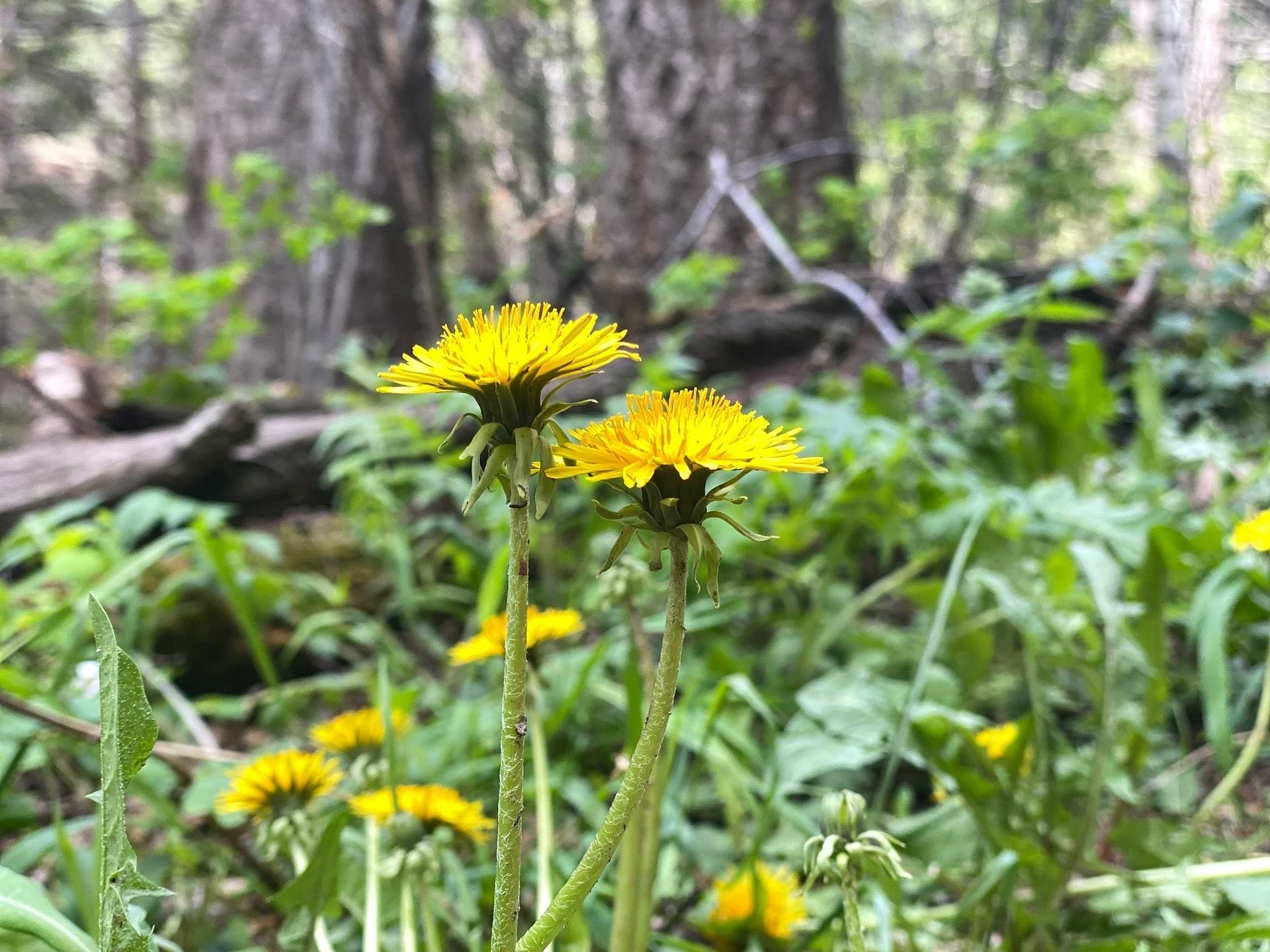“What is a weed? A plant whose virtues have not yet been discovered.” Ralph Waldo Emerson’s words capture a timeless truth about the misunderstood dandelion. For some, it’s a backyard nuisance. For others—herbalists, wellness seekers, and those willing to look beyond the lawn—it’s a treasure trove of health benefits, history, and versatility. The dandelion benefits are numerous, ranging from nutritional value to supporting liver and kidney health, optimal digestion and skin health!
This month, we’re spotlighting the dandelion (Taraxacum officinale), a perennial herb that has inspired centuries of health traditions across the globe. From its cheerful yellow flowers to its deep-reaching taproots, every part of the dandelion has something remarkable to offer. Get ready to fall in love with this humble yet heroic herb.
Botanical Background: Nature’s Persistent Survivor
The dandelion, a member of the Asteraceae (daisy) family, is a perennial plant native to Europe, Asia, and Northern Africa. Today, it thrives worldwide, sprouting in backyards, fields, and even the cracks of city sidewalks. Its adaptability is unmatched, flourishing in disturbed soils, deep and moist terrains, and altitudes as high as 12,000 feet in the Himalayas.
This hardy herb forms a rosette of deeply toothed green leaves at its base—hence its French name, dent de lion (lion’s tooth). A single stem rises to display its signature bright yellow flower, which closes at night and during cloudy weather. The thick taproot, dark brown on the outside and white within, anchors the dandelion plant and holds much of its medicinal magic.
Historical Use and Cultural Significance: A Global Legacy
Dandelion’s recorded history dates back to 659 BCE in China, where it was revered for its health-supportive properties. By the 10th century, Arab physicians were extolling its benefits, and its use soon spread across Europe. Native Americans also embraced dandelion, integrating it into their diets and health practices.
Traditional Chinese Medicine (TCM) classifies dandelion as bitter, drying, and cooling, entering the spleen, stomach, liver, kidney, and bladder meridians. Ayurveda praises it for its detoxifying qualities.
In European folklore, the plant symbolizes resilience and hope—its seeds, carried by the wind, are said to grant wishes. Dandelion flowers are traditionally used in various culinary applications, such as battering and frying, serving as a garnish, brewing tea, and even making wine and dandelion honey.
Health Benefits: Why Dandelion Deserves Its Crown
Liver and Gallbladder Detoxification
The liver plays a critical role in detoxifying the body, breaking down toxins, and producing bile to aid digestion. Dandelion, particularly dandelion root extract, has been traditionally prized for its ability to support and enhance liver function, particularly through its bitter compounds, which stimulate bile production. This action helps the liver process and eliminate toxins more efficiently, promoting better digestion and reducing the body’s toxic load. Dandelion also supports gallbladder health by supporting bile flow, which is vital for breaking down dietary fats and preventing bile stagnation.
Science Speaks: Studies reveal that dandelion root exhibits hepatoprotective properties, shielding the liver from oxidative stress, a key contributor to liver complications. Its high content of free radical scavengers, such as beta-carotene and flavonoids, fights free radicals, ultimately improving liver health and reducing the risk of liver-related conditions. You can read more about dandelion’s effects on liver health (Source: National Library of Medicine).
Aiding Healthy Digestion
Digestive discomfort, be it bloating, indigestion, or irregular bowel movements, often signals imbalances in the digestive system. Dandelion greens, along with dandelion’s roots and leaves, act as natural digestive tonics, offering relief by stimulating the release of stomach acid and digestive enzymes to promote efficient digestion. The plant’s bitter compounds are particularly beneficial for enhancing gut motility and breaking down fats, proteins, and carbohydrates during meals.
Bitters for the Win: Scientific research emphasizes the importance of bitters, like those in dandelion, in supporting gastric secretion and managing gut health. By facilitating nutrient absorption and reducing indigestion-related discomfort, dandelion proves to be an ally for digestive well-being. A deeper look at its digestive benefits can be found (Source: National Library of Medicine).
Kidney and Urinary Health
The kidneys are vital to detoxification, filtering waste and extra water from the blood to maintain electrolyte balance. Dandelion supplements are celebrated for their natural diuretic properties, which help the body shed excess water while supporting healthy kidney and bladder function. Unlike synthetic diuretics, dandelion does not deplete the body of essential minerals like potassium, making it an ideal choice for sustained kidney support.
Mineral Power: Rich in potassium, magnesium, and other minerals, dandelion not only aids toxin removal but also replenishes electrolytes, ensuring hydration and balance are maintained. To understand dandelion’s positive effects on the renal system, check out this study (Source: National Library of Medicine).
Hormonal Balance and PMS Relief
Hormonal imbalances can significantly impact physical and emotional wellness, particularly for women experiencing premenstrual symptoms (PMS). Starting a dandelion supplement can help, as dandelion’s diuretic effects reduce water retention and bloating associated with PMS, while its capacity to support liver detoxification contributes to hormonal harmony by aiding the breakdown and elimination of excess hormones.
Menstrual Magic: Herbalists recommend dandelion to address common PMS symptoms, including breast tenderness, cramping, and mood swings. Its combination of liver-supportive and inflammatory soothing qualities makes it a natural remedy for hormonal wellness. (Source: National Library of Medicine).
Inflammatory Response and Immune Support
Dandelion extracts are rich in phytonutrients and free radical scavengers such as luteolin and polyphenols, which give them potent inflammatory soothing properties. Additionally, dandelion has demonstrated immune boosting effects, making it particularly valuable during seasonal transitions when the immune system may weaken.
Inflammation Soother: Research shows that the properties in dandelion can ease cytokine activity, which contributes to an overactive inflammatory response. Its immune-boosting properties further enhance the body’s ability to defend against external threats. (Source: National Library of Medicine).
By incorporating dandelion into your wellness routine, you can benefit from a time-tested herb that supports vital systems throughout the body. Whether used as a tea, tincture, or dietary supplement, dandelion proves its worth as a truly heroic plant.
How to Use Dandelion: From Tea to Tincture and Dandelion Extract
- Tea: Steep dried dandelion leaves or roasted roots for a mineral-rich tea.
- Tincture: Opt for dandelion root tincture to support liver and digestive health.
- Salads and Sautéed Greens: Enjoy young dandelion leaves fresh or lightly cooked.
- Use dandelion flower petals to enhance dishes, make herbal teas, and even produce wines, showcasing their nutritional benefits and potential medicinal properties.
- Coffee Substitute: Roast and grind dandelion root for a caffeine-free coffee alternative.
Dosage: Always consult a healthcare provider for personalized recommendations, but typical doses include 1–2 cups of tea or 20–40 drops of tincture daily.
Synergistic Herb Combinations
Burdock Root
When paired with dandelion, burdock root creates a powerful duo for detoxification and overall well-being. Burdock root is renowned for its blood-purifying properties, helping to filter toxins from the bloodstream while supporting kidney function and skin health. Its natural inflammatory soothing components work in harmony with dandelion’s detoxifying capabilities, amplifying their combined effects on liver health and waste elimination. Additionally, burdock root supports cellular health, making this combination a go-to for anyone looking to reduce oxidative stress in the body.
- How to Use: Combine equal parts of dried burdock root and dandelion root to brew a tea, or blend their tinctures for a holistic detox remedy. This pairing is ideal for cleansing programs or for those experiencing sluggish digestion or toxin buildup.
Chicory Root
Chicory root not only enhances dandelion’s detoxifying properties but also provides its own unique health benefits, particularly for gut health. Rich in prebiotic inulin, chicory root nourishes beneficial gut bacteria, fostering a balanced microbiome. It also stimulates bile production, working alongside dandelion to optimize fat digestion and liver function. Additionally, chicory root has a slightly nutty flavor that complements the earthy notes of dandelion root, making them a flavorful and health-promoting combination in coffee substitutes.
- How to Use: Roast equal parts of chicory and dandelion roots to create a caffeine-free coffee alternative. Alternatively, blend the roots into herbal tea mixes to support digestive health and reduce reliance on caffeinated beverages.
Milk Thistle
Milk thistle and dandelion form a liver-loving power couple highly regarded in herbal medicine. Milk thistle contains silymarin, a potent free radical scavenger compound known for its ability to protect liver cells from damage and promote regeneration. When combined with dandelion’s detoxifying and bile-forming properties, these two herbs create a robust formula for preventing liver conditions and optimizing liver performance. This synergy not only supports liver detoxification but also contributes to balanced hormone metabolism and improved energy levels.
- How to Use: Take these herbs together in capsule form or mix milk thistle seeds with roasted dandelion root to create a liver-supporting tea. This blend is especially useful for those recovering from heavy alcohol use, medication side effects, or liver strain due to environmental toxins.
By pairing dandelion with these complementary herbs, you can take your herbal wellness routine to a new level, targeting a broader spectrum of health benefits through their synergistic effects. Always ensure to consult with a healthcare professional to tailor herbal combinations to your specific health needs.
Safety and Precautions
While dandelion is generally safe, consider the following:
- Allergies: Those sensitive to plants in the daisy family should proceed with caution. Dandelions can cause an allergic reaction in some individuals, including serious cases such as anaphylaxis. Mild allergic reactions may also occur, especially in those who are sensitive to similar plants like ragweed, daisies, or marigolds.
- Medication Interactions: Consult a healthcare provider if taking diuretics, blood thinners, or medications for diabetes.
- Pregnancy and Breastfeeding: Safe but should be used under professional guidance.
Own Your Health with WishGarden

Dandelion is the perfect gateway herb for anyone looking to embrace natural wellness. At WishGarden, we honor this "weedy wonder" in our formulations, combining its traditional wisdom with modern science. Explore our line of liquid herbal tinctures to experience fast-acting, effective remedies designed for real-life moments.
Meet the formulas:
- Clear Complexion - supports healthy and glowing skin
- Deep Cleanse - supports natrual detoxification processes
- Genius Juice - for brain clarity and healthy circulation
- Liver Strengthener - supports optimal liver function
- Male Mojo - supports healthy testosterone levels
- Party Prep- for a better morning after
- Urinary Strength - healthy bladder function and urinary support
- Morning Sickness for Pregnancy - eases nausea during pregnancy
- Postpartum Emotional -supports a healthy mood after pregnancy
- Stress Release for Pregnancy - calms and soothes the nervous system during pregnancy
- Cycle Harmony- detoxifies excess hormones from the body and supports a healthy cycle
- Cycle Vitality 2 - supports healthy progesterone levels
FAQs - Dandelion Plant
How can dandelions support heart health?
Dandelions contribute to cardiovascular health in several ways. Their high potassium content supports healthy blood pressure by balancing sodium levels and promoting fluid balance. Additionally, dandelions’ free radical scavengers, such as flavonoids, may ease oxidative stress and soothe inflammation in blood vessels, helping to maintain overall heart health.
Are dandelions beneficial for gut microbiome health?
Absolutely! Dandelion root is a rich source of inulin, a prebiotic fiber that nourishes beneficial gut bacteria. By feeding these microbes, dandelions help improve digestion, enhance nutrient absorption, and strengthen the immune system. A healthier microbiome also contributes to better mood and energy levels.
Can dandelions boost immunity?
Yes, dandelions contain immune-boosting compounds, including vitamins A and C, as well as phytonutrients like luteolin. These components enhance the immune system by fighting off free radicals and supporting the body’s natural defense mechanisms. Dandelions are especially valuable during cold season as a supportive herb.
How can dandelions help with skin conditions?
Dandelions have soothing and detoxifying properties that can benefit the skin. They are often used to support conditions like acne and rashes by promoting liver detoxification, which helps the body clear toxins that may cause skin flare-ups. The flowers and leaves can also be infused into oils or made into poultices for topical application to soothe irritated skin and calm redness.
Rebecca Younger is passionate about herbs and women's health. She aspires to plant seeds of inspiration within her community about plant medicine and healthier ways of life. She studied Herbal Medicine at Herbalism Roots in Denver and is a certified Doula through the Matrona Foundation. She is the Brand Communications Specialist at WishGarden Herbs.
For educational purposes only. This information has not been evaluated by the Food and Drug Administration. This information is not intended to diagnose, treat, cure, or prevent any disease, or to sell any product.
Recommended Products
Further Reading















